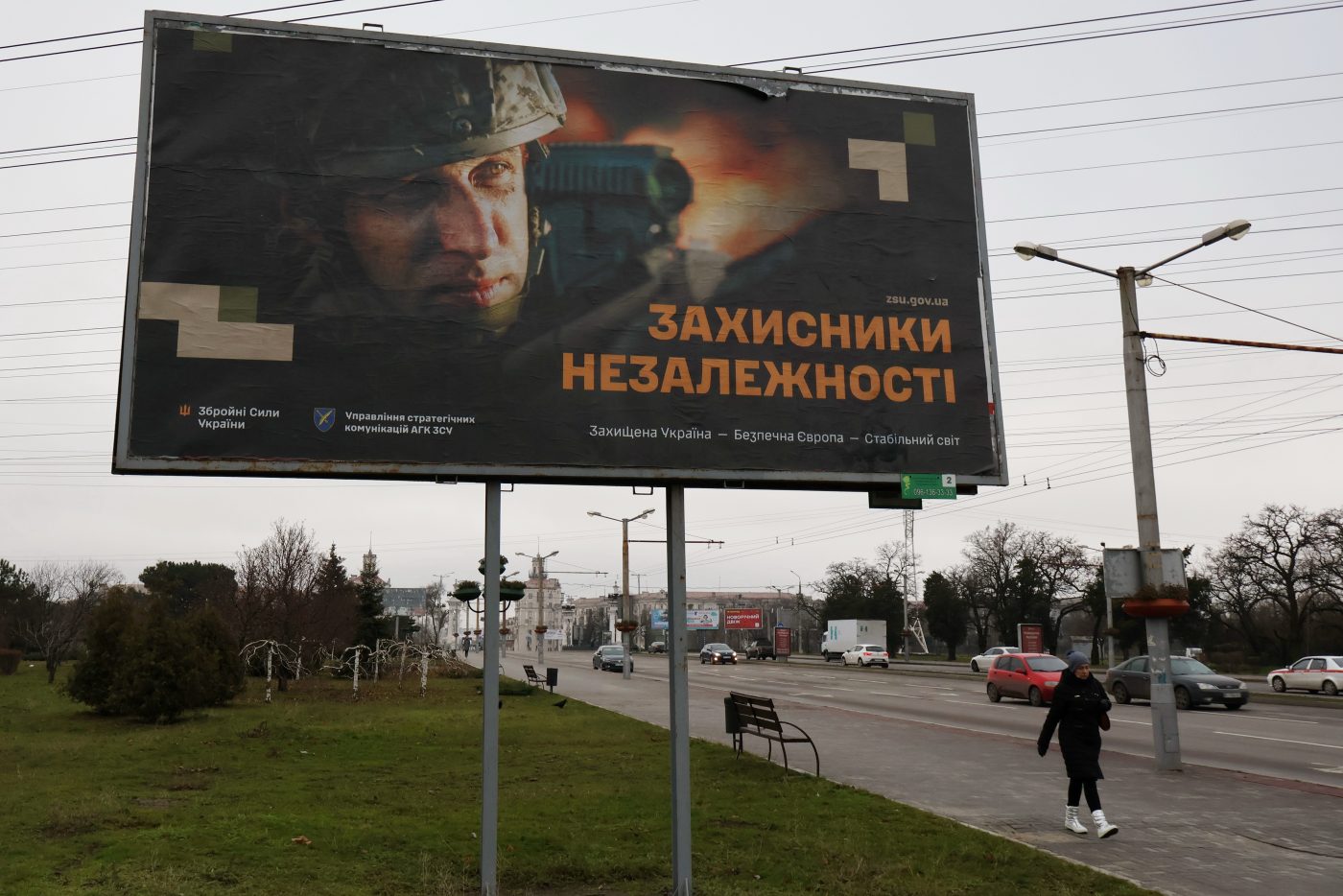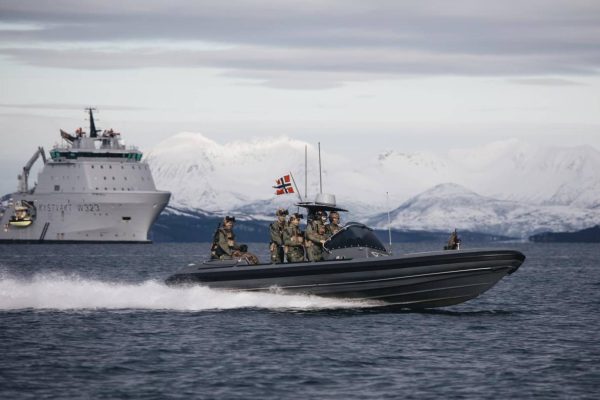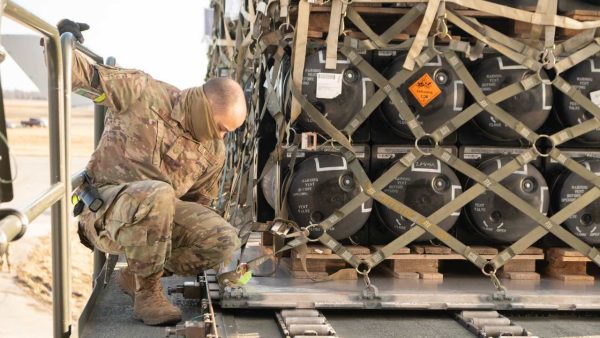Military leaders in Ukraine called for several hundred thousand new soldiers to help break the stalemate on the battlefield late last year, triggering a clash over strategy between President Volodymyr Zelenskyy and then Commander-in-Chief Valerii Zaluzhnyi.
While the disagreement reportedly contributed to Zaluzhnyi’s dismissal, all sides agree more soldiers are desperately needed for the frontline, to relieve and replace those fatigued by two years of war. A figure of up to half a million has been discussed. Zelenskyy has asked to be told how they would fit in the overall plan and how would they be paid for — with some saying the president is trying to avoid responsibility for an unpopular measure.
It is clear something must be done. Ukraine does not release casualty numbers, but US estimates last year suggested almost 200,000 had become casualties, including 70,000 dead.
The Ukrainian parliament’s first attempt at a mobilization law was widely criticized at the end of December and it has now accepted a modified draft, bringing a further barrage of attacks from the opposition and some members of the president’s team. They say it is unconstitutional, a corruption risk, and fails to offer conscripts clarity over their expected length of service.
The law would lower the age for military service from 27 to 25, a nod toward the surprising average age of frontline troops, which is now 43. The reason is largely demographic; the country has many more men in that age bracket, with 26% of Ukrainian men aged 35-49, but only 17% aged 20-34. (Women are excluded from the call-up.) An aging frontline force raises obvious questions on health and fitness.
How to best recruit a new force has also raised questions about basic liberties. Dmytro Lubinets, the parliamentary Commissioner for Human Rights, said some provisions of the law contravene the Constitution, including the requirement for all potential conscripts and reservists to register online.
According to this provision, every Ukrainian man of conscription age (18 to 60 years old) would be required by law to set up an electronic account as a potential recruit, to which call-up letters would be sent. Sanctions would be imposed for failing to do so.
These punishments would include a ban on using consular services abroad and blocking conscripts` bank accounts. The latter measure was criticized by David Arakhamia, leader of the President’s faction in Parliament, and Lubinets warned it contradicts laws on data protection. There are also proposals to limit the driving licenses of those refusing.
The consular ban raises questions about tens of thousands of Ukrainian men living outside Ukraine, who have been repeatedly invited to return to fight for their country. Resentment about their absence is growing, and an amendment requiring military ID to obtain government assistance abroad would be a lever to encourage their return.
Europe’s Edge is CEPA’s online journal covering critical topics on the foreign policy docket across Europe and North America. All opinions are those of the author and do not necessarily represent the position or views of the institutions they represent or the Center for European Policy Analysis.
Another criticism of the revised proposal is that it fails to detail the rotation of frontline personnel. The opposition demanded all soldiers should be given the right to demobilize after 36 months of service, but the proposed law says this should be at the discretion of military commanders.
Oleksiy Goncharenko, a prominent opposition MP, warned the bill would worsen the problems of those serving on the battlefield because they could wait years for a demobilization decision from headquarters. He argued that a fixed 36-month limit would improve morale among exhausted personnel.
Zelenskyy replaced Zaluzhnyi as commander-in-chief on February 8, after months of speculation about their strained relations. The general’s opinion poll approval ratings are double those of the president, which has made some attribute the decision to politics. That suspicion contributed to harsh criticism from the public when the decision was announced.
Oleksandr Syrskyi, Zaluzhnyi’s replacement, is less popular among the civilian population and the army. Even though he is famous for the liberation of the Kharkiv and Kyiv regions, he is also well-known for the failed defense of Bakhmut and Soledar in 2023 and the Debaltsevo “boiler” in 2015. All of these operations resulted in heavy casualties.
According to social media posts from soldiers who claimed to have served under Syrskyi’s command, his approach is characterized by a willingness to accept high losses of personnel. It’s probably not accidental that the general’s first statement after his appointment stressed his concern for troop welfare.
He is also a frequent visitor to the most dangerous places on the frontline, and some soldiers have expressed hope this would make him a good commander with a grasp of the needs of ordinary soldiers.
Political squabbles, laws that do not adequately consider soldiers’ needs, numerous scandals, and low levels of morale in some units are important issues that need to be resolved by the government as soon as possible if Ukraine is to succeed on the battlefield.
The current proposals offer conscripts too few guarantees and do not offer coherent methods for efficient mobilization. The second and final reading of the law will come within weeks. There is still a chance to accept the necessary amendments to fix the situation.
Mykyta Vorobiov is a political adviser, journalist, and political science student at Bard College Berlin. He studied at the Ukrainian Catholic University, the National University of Kyiv-Mohyla Academy, the University of Tartu, and the University of Zagreb. For the last two years, he has been developing articles for VoxEurop and others.





